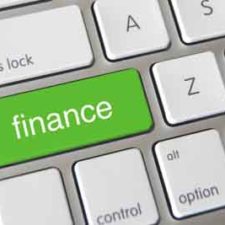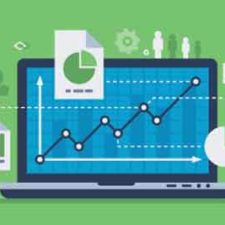The growing inequality in the resource distribution over the different parts of the world is alarming and a striking feature that characterizes the present state of the world economy. If we look at the growth rate of the economic conditions of different countries in the world, the report states that China has made the highest growth while India has also substantially increased their economic growth in the recent past. However, countries in sub-Saharan Africa are still at a standstill with respect to economic growth, widening the differences in the economic condition between the different parts of the world.
What is development economics?
Development economics is a specialized branch of economics that deals with the study of the transformation happening around in the developing nations of the world. It tracks the journey of an emerging nation to attain a prosperous status. In doing so, it focuses on the improvement of economic, social, and fiscal conditions of these emerging also known as developing countries.
The different aspects considered for tracking the journey of a developing country is varied and includes education, health standards, international and domestic policies, working hours, and the condition of the market. The entire objective of this study is to improve the existing conditions of economically backward countries of the world.
Apart from these existing factors, development economics also takes into consideration factors pertaining to the fields of both macroeconomics and microeconomics that have a major role to play in shaping the financial structure of the developing countries. Macroeconomics focuses on broad influential factors such as interest rates, while microeconomics is targeted towards individual interests. You can read Development economics on Wikipedia for more information.
Explaining development economics
While the goal for development economics is to improve the financial condition of the world’s most economically backward countries, the strategies adopted are varied and depends on the specific country in question. The strategies are widely varied owing to the different political and social backgrounds of the countries.
Professional economists and students develop theories and strategies respective to each country which they determine to be the best suited. the probability of the applicability of general theories and strategies in the field of development economics is meagre. Once these strategies and policies are determined, they are implemented to bring about a change at both international and domestic levels.
What are the different features attended by development economics?
Economists use development economics to find an answer to the following aspects of an emerging nation –
- Impact of the rapid population growth on the development of the nation
- Impact of the structural transformation of the nation’s economy
- Role of health care on development
- Role of education on development
- Impact of globalization and international trade
- Impact of sustainable development
- Impact of AIDS and HIV on development
- Impact of natural calamities and catastrophes on human and economic development
Real world implementation of development economics and its effects
The 16th to 18th century Europe witnessed the implementation of an extremely popular and useful economic theory called mercantilism. Mercantilism was a popular economic system of trade that based on the foundation that the world’s economic condition was stagnant. This economic pause led many European countries to attempt to accumulate the largest possible share of wealth by carrying out maximum export and minimum import through tariffs. Mercantilism also promoted expanding state power by diminishing revelation to rival national powers.
Mercantilism had a lot of similarities with the world that was subject to monarchs and political absolutism. It promoted regulation by the government to prohibit parties from transacting with parties belonging to other nations.
Scope of development economics
The study of development economics paves the way for application of the strategies and tools of economic analysis to address the challenges faced by the economically backward countries and make them economically stable and improve their human relationships.
What are the best institutions to study development economics?
The world’s best universities offering a course on development economics are widely distributed. The best five universities are –
- University of Sussex, United Kingdom –
Situated in the city of Brighton and Hove, this is a research-oriented university where the students are encouraged to have a broader mindset, a deeper thinking ability and mark their presence on the world in the future
- Harvard University, United States of America –
This is the oldest institution established in the United States in the year 1636. Located in Cambridge, Massachusetts, Harvard is for the best of the best.
- The University of Manchester, United Kingdom –
Offers a PHD degree in development policy and management. They encourage their students to interlink their research with different aspects of the real world, like policymaking, public understanding, and they back their students to pursue opportunities to present their findings to the world.
- University of Oxford, United Kingdom –
Features a nine-month degree course in development economics. The course emphasizes on modern economic analysis models to bring about economic development. This course helps to prepare a student for further research or even work as a professional in different departments like governments, international agencies and private sector.
- The London School of Economics and Political Science, United Kingdom –
Offers a master’s program in development economics. A student can either opt for a twelve-month, full-time course or a twenty-four-month, part-time course. The course focuses on the application of contemporary theories of social science and economics to understand the policy, processes, and practice of development.
Development economics course description
An advanced degree in development economics focuses on the key principles and issues pertaining to the economics of development of the economically backward countries of the world. The different topics covered in development economics are –
- Impact and role of financial development in the overall development and reduction of poverty.
- Evolution of thoughts of economic development.
- Open and closed questions in economic development.
- Traditional and latest growth theories in development.
- Structural change and dualistic development.
- Financial development.
- Role of government in development.
- Role of institutions in development.
- Challenges of development in the 21st century.
Once the foundation is laid, the course concentrates on the international aspects of development economics. It features –
- Impact of globalization on economic development
- International trade and development
- Development of external finance
- Impact and management of open-economy development
- Impact of globalization on growth and equity
- Case studies
Top career paths for development economics
- Charity or NGO
If you are an individual who is driven to make the world a better place, then charity or NGO is your choice of career. A degree in development economics makes the work easier and the principles can be implemented to start making efforts in improving the conditions of single communities at a time. However, the working hours are chaotic and values overpower business. So, it is not a suitable career option for someone who is extremely ambitious.
With the increasing number of people becoming aware of the positions in a charity or non-governmental organization, the job opportunities are becoming limited. Often, people have to start with volunteering for charity and prove their worth before they are finally hired. It is better to start volunteering while completing your education so that you do not waste any time. Organizations like War on Want, Action Aid or Foundation for European Economic Development are a few organizations with open positions for research in the field of development economics.
- Global organizations
If someone wants to work for global organizations as a developmental economist, the best option is the United Nations. The UN hires in different parts of the world and have diverse profile to offer. The most commonly offered positions are –
- administration
- project management and coordination
- financial management
- policy analysis
Most people working in these organization are extremely value-driven and extremely committed to their work.
A typical job responsibility in such an organization involves –
- balancing the needs and demands of the different stakeholders involved
- understanding the different point of views and taking actions accordingly
To succeed in this sector of development economics, one must have a broad mine, excellent communication and persuasion skill, ability to prioritize and the ability to adapt to any kind of situation.
It is not just the United Nations that has the job opportunity. One can also apply for African Union and Association of Southeast Asia Nations among many other organizations.
What does a developmental economist do?
A developmental economist is expected to conduct researches for the formulation of strategies to address economic problems pertaining to production and distribution of goods and services. Apart from this, a developmental economist is also held responsible for the analysis of manufacturing extensions, maintaining strategic entrepreneurship and corporate partnerships. Development economics has an inter-relation with the economic condition of the region in question. And an economic development specialist is expected to formulate plans and strategies depending on the socioeconomic conditions and living standards of the people residing in that specific area to make the region improve its financial condition.
To become an economic development specialist, a candidate must make sure to meet all educational qualifications requirement. And that is not enough. The candidate must have an experience in different fields or projects before rooting for the position of an economic development specialist.
Key skills of an economic development specialist
The economic development specialist is expected to possess the following skills apart from excellent interpersonal and communication skills –
- expert knowledge about accounting principles and economics
- effective and expert knowledge of different mathematical subjects
- expert knowledge on legal proceedings, government laws and regulations, and court procedures
- clear understanding of management principles and business strategies
- logical reasoning
- innovative thinking abilities
- excellent time management skills
- upfront and quick to take accurate decisions
Educational qualification to become an economic development specialist
To build a career as an economic development specialist, a candidate must receive formal business education. The candidate must have a bachelor’s degree in either management, business administration or marketing. To become a specialist, it is advisable to have an experience of minimum five to seven years. However, a candidate with an excellent education background with a master’s degree in administration, development economics, marketing or business management has an edge over a candidate with just a bachelor’s degree.
What are the job responsibilities of an economic development specialist?
The job responsibilities of an economic development specialist are varied and mainly focuses on key aspects of compilation, analysis, and explanation of different economic situations by the implementation of statistical and mathematical techniques. An economic development specialist is held responsible for the following tasks –
- preparing technical reports and scientific articles on different economic issues based on their research findings
- consulting and providing advice on different economic relationships to business organizations
- understanding the socioeconomic impacts of latest policies and their proposed legislation, taxes, services and regulations
- supervising students on their research projects
- providing trainings and lectures to students on different aspects of economics like methods and theories
- studying different available data and being an expert in his/her field of specialization
- planning policies to address different economic problems
- analyzing data by interpreting underlying principles
- using different types of software to process information and analyze them
What is the salary of an average economic development specialist?
The annual median salary of an economic development specialist is estimated to be about $99,000. However, this may vary depending on the employer and the qualification and experience of the candidate.
Now that you know almost everything
about development economics, don’t feel scared to take a plunge and try making
a career in the field. Who knows, you can become the next Amartya Sen!
Author Bio –
Petra Persson is a graduate in economics from Stanford University who is known for her amazing academic record. Currently, she has focused on teaching economics to high-school students to help them shape up their career. She specializes in developmental economics and guides students on the correlation between the different branches of developmental economics. Her goal is to make students understand all the intricate basic laws and theories of economics so that they can apply them in practical situation and not just mug up the textbook to write a test.



















